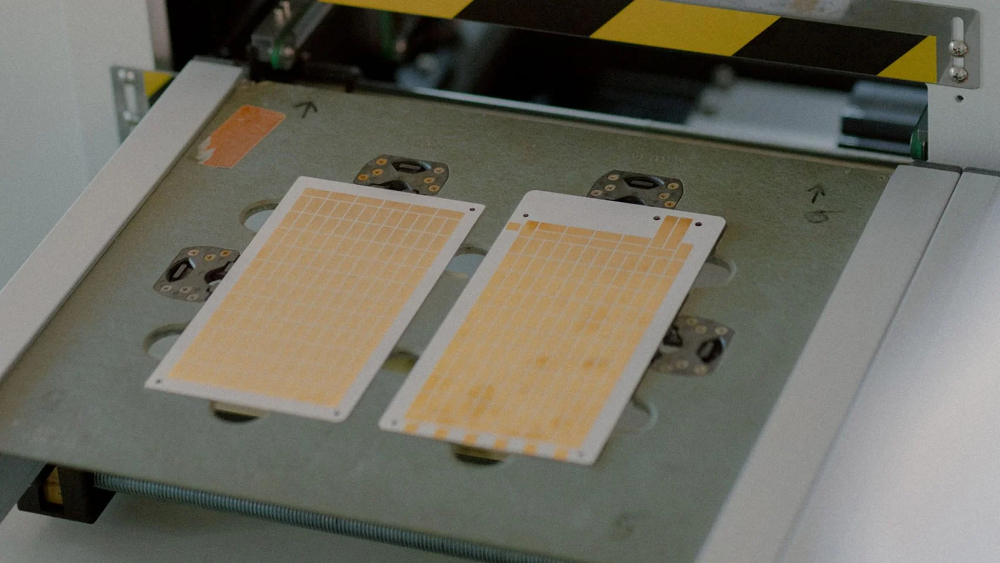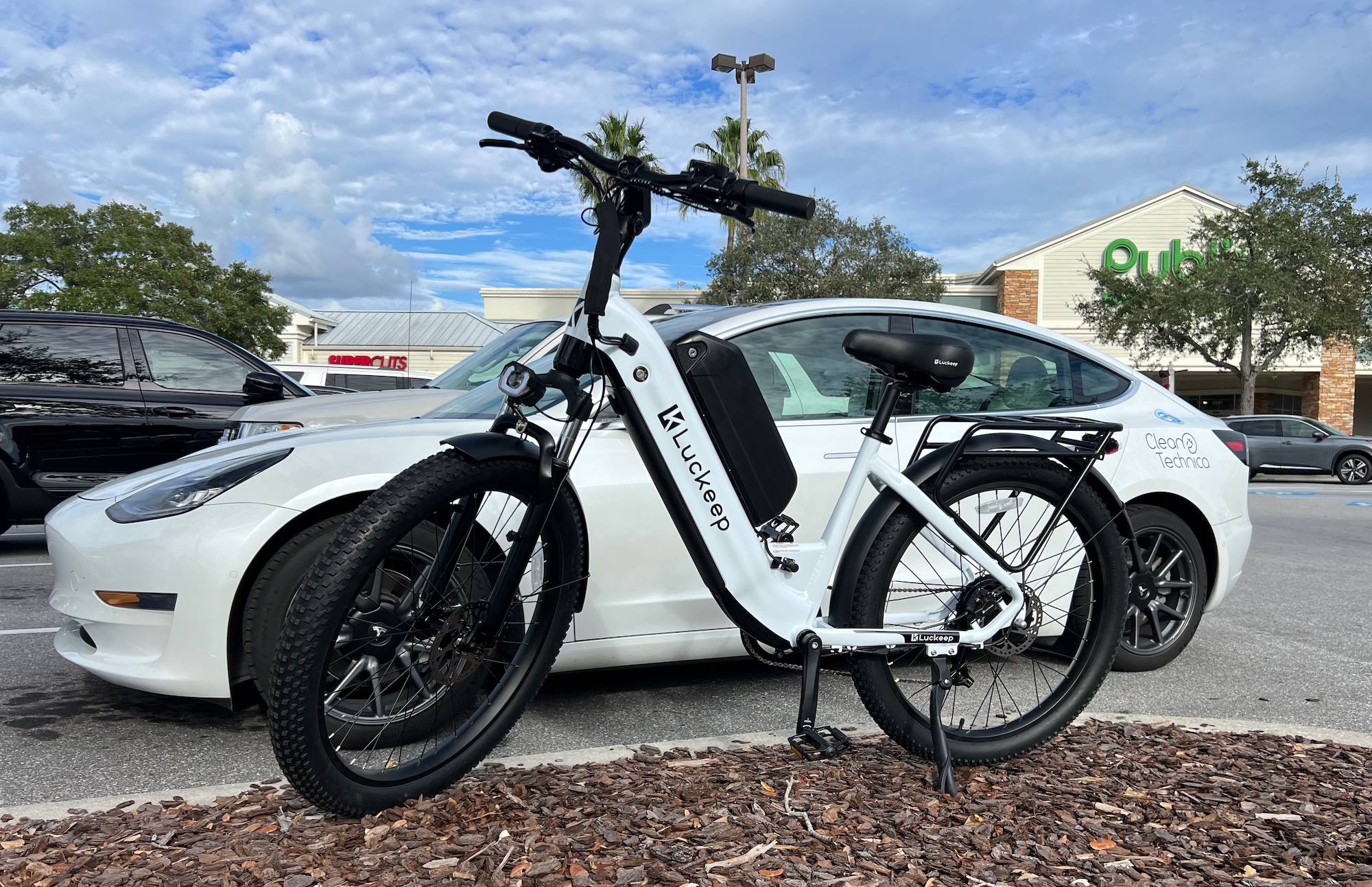Sign up for daily news updates from CleanTechnica on email. Or follow us on Google News!
The Earthshot Prize is an annual event created by Prince William of the UK and British wildlife presenter and historian David Attenborough in 2020. Each year, five winners receive £1 million each to scale up projects designed to tackle different environmental issues, from air quality to protecting the oceans of the Earth. On its website, the Earthshot Prize says it is intended to find and grow the solutions that will repair our planet, “We face our greatest challenge — to regenerate the place we all call home in the next ten years.” The program searches the globe for the latest technology innovations in its ongoing search for game changing innovations.
Earthshot Winners For 2024

Advanced Thermovoltaic Systems
Among this year’s winning entries is Advanced Themovoltaic Systems, a Canadian company that has designed an industrial scale modular unit that produces electricity directly from waste heat and requires no moving parts. The electricity results after waste heat is passed over smartphone-sized plates manufactured using an assembly process that is similar to the way cell phones are manufactured. That makes the plates easy to scale, transport, and install.
According to Dezeen, the idea behind the project was to create an alternative to traditional turbines and transform the energy required to power the world’s industrial plants that make cement, steel, and chemicals. 60% of that heat is lost as waste heat, according to ATS. “This unused energy represents a vast resource, equal to the energy needs of four billion homes. That is twice the total number of households worldwide,” said ATS CEO Kelly Adams.
Keep It Cool
Keep It Cool is a company founded in Kenya by Francis Nderitu that has developed solar-powered refrigeration systems, which allow small farms and fisheries to preserve their produce in off-grid cooling boxes. “Our technology offers a circular energy solution that creates valuable electricity and reduces emissions at scale,” Nderitu said. He and his team developed the project to tackle the 40 to 50% of produce in sub-Saharan Africa that is lost before it reaches consumers due to scorching temperatures and a lack of cold chain solutions, according to the Food and Agriculture Organisation. “Our aim is to make cold chain solutions both affordable and accessible, even in underserved regions like Turkana in northern Kenya,” the company said.
Green Africa Youth Organisation
The mission of the Green Africa Youth Organization is to tackle environmental issues through youth empowerment, public education and skills development. The organization has designed a waste management system to reduce the need for landfills and create cleaner air. Directed by Desmond Alugno, it operates in Ghana, Botswana, Uganda, and Kenya.
Altyn Dala Conservation Initiative
A Kazakh conservation group, the Altyn Dala Conservation Initiative says, “We work directly with local communities to reduce the vulnerability of groups that are at risk of climate impacts such as children, youth, and women who have a comparatively less adaptive capacity due to social and structural inequalities.” Founded by Vera Voronova, the conservation group is working to restore fragile steppe, wetland, and desert ecosystems in Kazakhstan.
High Ambition Coalition for Nature and People
The final Earthshot Prize for 2024 was awarded to the High Ambition Coalition for Nature and People, an intergovernmental group that counts 118 countries as members. It is co-chaired by Costa Rica and France and directed by Rita El Zaghloul. The group is putting pressure on global governments to officially protect 30% of our land and oceans by 2030, according to the Earthshot Prize.
Prince William announced the five winners of this year’s Earthshot Prize on November 6, 2024 at a glitzy ceremony in Cape Town, South Africa. The winners were selected from a list of 15 finalists. “I believe our world can be rich in possibility, in hope and optimism. That is why the Earthshot Prize exists, to champion the game changers, the inventors, the makers, the creatives, the leaders; to help them build upon the amazing things they’ve already achieved; to speed their innovations to scale and to inspire the next generation to create the future we all need,” Prince William said.
Planned to be awarded annually until 2030, the Earthshot Prize celebrates projects that respond to the United Nations’ Sustainable Development Goals. Now in its fourth year, previous Earthshot Prize winners have included an AI-powered soil carbon marketplace and a plastic packaging alternative made from seaweed.
What Good Does The Earthshot Prize Do?
The five areas of concentration for the Earthshot Prize are: Protect and Restore Nature; Clean our Air; Revive our Oceans; Build a Waste-Free World; and Fix our Climate. One could hardly imagine more general descriptions. They make great bullet points but offer few guidelines to actually achieving those goals. The awards ceremony, however, was a glitzy affair featuring an array of entertainers, singers, and influencers from around the world.
Hosted by Billy Porter and Bonang Matheba, it featured performances by Lebo M, the Ndolvu Choir, Nomzamo Mbatha, Davido, Diamond Platnumz, Heidi Klum, Nina Dobrev, Robert Irwin, Tobe Nwigwe, Uncle Waffles, Winnie Harlow, and Ebuka Obi-Uchendu. Perhaps we here at CleanTechnica are just getting cynical in our old age, but a parade of people warbling and trilling on stage while inventing cool new hand gestures to astound their followers seems rather juvenile to us. If you want to give a concert, great. If you want to put a spotlight on new technology that might actually help us avoid turning our planet into a baked potato, it might be better to lead with that and leave the entertainers — and the emissions they created as they descended on Cape Town — off the agenda.
The two most important winners in this years competition were Advanced Thermovoltaic Systems and Keep It Cool. Waste heat is an enormous issue in the fight to keep from overcooking the Earth. Almost every industrial process generates heat and the majority of it just escapes into the atmosphere, making everything a little bit hotter. We need cooler, not hotter and as data centers suck up every available electron in their quest to bring AI to everyone, everywhere, all the time, capturing their waste heat and turning it into electricity that could help run them without building new nuclear, coal, and methane powered thermal generating stations seems like an idea worth pursuing.
Helping the fishing and farming communities avoid spoilage — 50% is a lot of fish and food to waste in a world where hunger is rampant — makes the solar-powered off-grid refrigeration equipment from Keep It Cool deserving of their Earthshot Prize as well. We wish both companies every success.

Chip in a few dollars a month to help support independent cleantech coverage that helps to accelerate the cleantech revolution!
Have a tip for CleanTechnica? Want to advertise? Want to suggest a guest for our CleanTech Talk podcast? Contact us here.
Sign up for our daily newsletter for 15 new cleantech stories a day. Or sign up for our weekly one if daily is too frequent.
CleanTechnica uses affiliate links. See our policy here.
CleanTechnica’s Comment Policy




